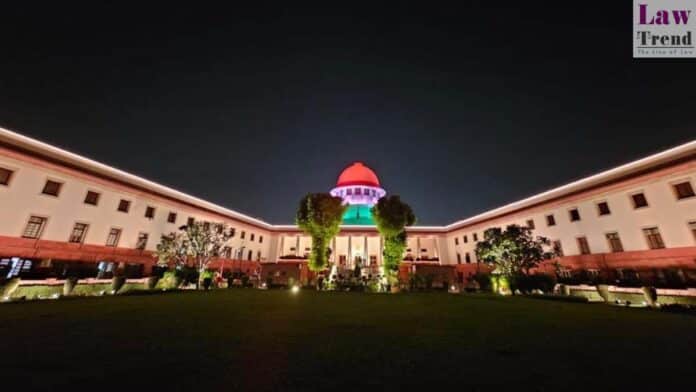The Supreme Court on Thursday reserved its verdict on reconsideration of an earlier order of its five-judge bench which had held that unstamped arbitration agreements are not enforceable in law.
A seven judge-bench headed by Chief Justice D Y Chandrachud heard submissions of various senior lawyers including Darius Khambata and Shyam Divan since Wednesday before reserving its judgment.
Khambata said stamp or lack of stamp is a defect which is curable and this should lead to a situation where the purpose of having an arbitration agreement between parties gets defeated.

The CJI also observed that the whole object of sending parties to arbitration is “stumped and the purpose is defeated”.
“If there is a possibility of defects in the arbitration agreements being cured then how do you throw it out in the threshold,” observed the bench which also comprised justices Sanjay Kishan Kaul, Sanjiv Khanna, B R Gavai, Surya Kant, J B Pardiwala and Manoj Misra.
Earlier on September 26, the top court had referred to a seven-judge bench the issue of reconsidering the correctness of a verdict delivered by a five-judge bench which had said that unstamped arbitration agreements are not enforceable in law.
The order was passed by a five-judge bench headed by the CJI while considering a curative petition in which the matter regarding the need for reconsideration of the five-judge bench judgement delivered on April 25 was raised.
“Having regard to the larger ramifications and consequences of the view of the majority in NN Global (April verdict)… we are of the considered view that the proceedings should be placed before a seven-judge bench to reconsider the correctness of the view of the five-judge bench,” the bench had said while referring the matter to larger one.
In its verdict in April, the five-judge bench, by a majority of 3:2, had said, “An instrument, which is exigible to stamp duty, may contain an Arbitration Clause and which is not stamped, cannot be said to be a contract, which is enforceable in law within the meaning of section 2(h) of the Contract Act and is not enforceable under section 2(g) of the Contract Act.”
“An unstamped instrument, when it is required to be stamped, being not a contract and not enforceable in law, cannot, therefore, exist in law,” it had said.
Also Read
During the hearing on Tuesday, the apex court said it was of the view that the matter be placed before a larger bench of seven judges.
“What is happening now is that arbitrators across the country are being confronted with a situation where they are being told that there is an unstamped agreement. Reopen this issue,” the bench observed, adding, “We need to resolve it”.
One of the advocates appearing in the matter said that the verdict by the five-judge bench needed reconsideration and the finding that if an agreement is not stamped, it is non-existent, may not be correct.
On July 18, the apex court had issued notice on the curative petition and said it be listed for hearing in the open court.







